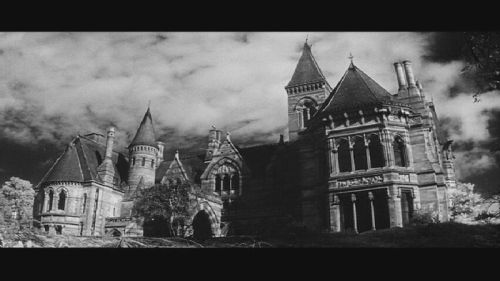
The third in a trilogy of novels set in a bleak world that is isolated from all other society, Gormenghast is a deliberately-paced story with a Gothic sensibility. It’s frequently listed on lists of best English-language novels and inspired a BBC mini-series. After finding the first novel, Titus Groan to be slowly paced if intriguing, I saw things pick up in Gormenghast, and was surprised at Peake’s willingness to have his characters do the unexpected. It is indeed an engaging and original tale.
is a deliberately-paced story with a Gothic sensibility. It’s frequently listed on lists of best English-language novels and inspired a BBC mini-series. After finding the first novel, Titus Groan to be slowly paced if intriguing, I saw things pick up in Gormenghast, and was surprised at Peake’s willingness to have his characters do the unexpected. It is indeed an engaging and original tale.
I often see Gormenghast described as a fantasy novel, and I continuously find myself wondering where it got that label. Certainly it has some fantastic, larger-than-life characters who would not really exist in the daily world, but nothing that happens is particularly unbelievable or extreme. I guess it doesn’t slot well into another genre, because it’s not really historical fiction, but rather a universe and mythology that springs completely from the author’s imagination. As a reader, you can believe that a place like Gormenghast might exist in another time or dimension.
It’s also possible, I suppose, to see Gormenghast as Titus’s coming-of-age story. In Titus Groan he is born, and we learn much about all of the people who surround him even as we don’t really know the child who will eventually become Earl of Gormenghast and leader of the land in the second book. Once we do come to book two, though, we learn much about the young man as he grows up, from early youth all the way to manhood (there are three or four cataclysmic events that pave the way for his transition from child to adult).
Really, though, Gormenghast is about a land with rules and strict notions of how to live on a daily basis. But agents of chaos are swirling in the background, trying to mold Gormenghast into something that follows their own whims and caprices. Titus might be included amongst these chaos-bringers except for the fact that he desperately yearns to break free of his duties and expectations.
Peake was a masterful writer, full of detail and displaying a real talent at evoking a mental image through his words. I had specific images of all the key players in my mind, as well as a certain feeling about how the castle and buildings surrounding it should look. His insistence on being descriptive might make the story unfold slowly enough that it would put let patient readers off, but there are great rewards for those who watch the story unfold to its sort-of cliffhanger ending.
Obligatory FTC note: I received no compensation from any publisher, author, or anyone else for my review of this book. In fact, it’s been sitting on my bookshelf looking lonely for a couple of years now, but given the amount of time I’ve spent with it over the last couple of weeks, it probably is feeling a little smothered and would like a moment to itself.



